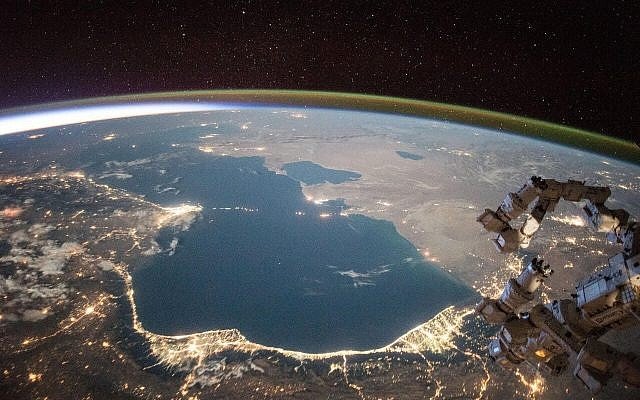A sea and thousands of concerns

The name of the "Caspian Sea" has been recently heard more than any other time! In the meantime, there are rumors, ambiguities and, of course, concerns that need to be described in the Convention on the Legal Status of the Caspian Sea which was signed on August 12 in the port city of Aktau, Kazakhstan.
Accordingly, there are some important points that calls for attention and scrutiny. In general, over the past 21 years, several meetings have been held on the Caspian Sea and how the coastal countries should be benefited from its resources. In these meetings, legal, security, economic, and even cultural cooperation were discussed among the littoral countries.
After more than two decades of fraught diplomatic efforts, the five littoral Caspian nations – Russia, Iran, Kazakhstan, Azerbaijan and Turkmenistan – agreed upon a legal framework for sharing the world’s largest inland body of water. However, as long as all disputes, especially legal conflicts between the participating countries aren't resolved, it is impossible to talk about the establishment and continuity of sustainable relations among these countries. It should be noted that over the past two decades, one of the main tasks of our country's Ministry of Foreign Affairs has been to direct this case and determine its legal convention.
1) Prolongation of the finalizing process of a case is not undesirable if it's the result of scrutiny in the legal and technical parts. This is the case with determining the legal dimensions of the Caspian Sea Convention. After the collapse of the Soviet Union, we witnessed a kind of transformation in the Caspian legal regime. The Soviet Union was divided into 15 countries.
Consequently, Russia, Kazakhstan, Azerbaijan and Turkmenistan each became a separate and independent variable in this equation. Undoubtedly, the transformation of a two-variable legal equation into a "legal-security" multivariable equation is not considered a simple transformation. Therefore, we should understand the complexities of the Caspian case.
The countries of Iran, Azerbaijan, Turkmenistan, Russia and Kazakhstan each have specific demands regarding their share of the Caspian Sea resources. Making a balance between these demands and subsequently realizing them is very difficult and complicated. What is important in this context is to strengthen the "principle of cooperation" among the Caspian coastal nations, and to define joint maritime projects among all neighboring countries to protect the Caspian Sea.
Another point to be taken into consideration here is about the draft of the Caspian Sea Legal Convention and the role of the Foreign Ministry in this process. As mentioned above, the Caspian Sea Case has been open for more than two decades and has not yet come to a complete conclusion. Negotiations held among the Caspian Sea littoral states should distract our attention from the realities.
It should be noted that the establishment of the Caspian Sea Legal Convention is the basis for solving the existing disagreements over the Caspian Sea and defining concrete and conclusive cooperation among the littoral countries. A remarkable part of such security and economic cooperation will be the result of this convention.
In other words, the Convention on the Legal Status of the Caspian Sea can't and shouldn't be taken as in the same level with "defining the security and economic cooperation" between the coastal countries. Undoubtedly, the definition of economic, security and even cultural cooperation between the coastal countries depends on the settlement of legal disputes between these countries and setting of a common legal convention.
2) Speaking of controversial issues such as Iran's 50 percent share of the Caspian Sea, which couldn't be fulfilled even before the collapse of the Soviet Union, and the creation of false subjectivities in the country, by those who claim to be the representatives of our people, has no result except for the weakening of national security.
his is while the Iranian president, Hassan Rouhani, had emphasized that “we should recognize there are more important issues that need to be addressed.”
This is a legal process, and one of the main tasks of our country's diplomacy and foreign policy system is to manage and direct this complex process. Obviously, under the current circumstances, expressing biased and targeted words will only lead to the loss of focus of our country's diplomatic apparatus on this critical case.
Finally, it should be noted that good commitments were made during the meeting among the countries involved in this case. Today, the ministers of foreign affairs of the Caspian littoral states, unanimously emphasize on the necessity of the absence of foreign forces in this region, which is a positive trend. Moreover, from the statements made by the foreign ministers of the Caspian littoral states, we understand that their cooperation on resolving existing disputes has become faster than before.
However, until all legal conflicts between the Caspian littoral countries are not totally resolved and the Convention of the Caspian Sea Law Convention is not perfectly codified, we can't think of this legal and strategic case as closed and settled. Therefore, in this critical situation, all efforts should be made so that Iran can benefit most.
It is emphasized here that even one singled legal disagreement should not remain among the players involved in the case. Meanwhile, the mechanism for resolving disputes should be carefully decided. Therefore, while welcoming the settlement of the existing disagreements over the Caspian Sea, there shouldn't be any haste in completing this process.

Leave a Comment